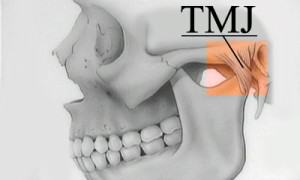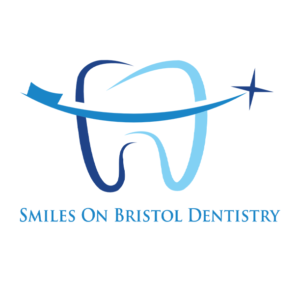Dr. Kalantari, of Smiles on Bristol in Santa Ana, says many Southern Californians are walking around with temporomandibular joint syndrome and don’t even know it!
WHAT IS IT?
Temporomandibular joint syndrome, better known as TMJ, is a disorder of the jaw muscles and nerves, caused by injury to the temporomandibular joint. The temporomandibular joint operates has a hinge as a connection between the jaw and the temporal bones in the skull, located in front of each ear. The joint operates to allow the jawbone to move up and down and side to side. Everyday actions such as talking, chewing and yawing are all done through usage of this joint. 
WHAT CAUSES TMJ?
The causes of TMJ are not completely clear. However, it’s known that injuries to the jaw, joint, or muscles within the head and neck, such as whiplash or a blow, can lead to temporomandibular disorders (TMD). Other causes include:
- Stress: Tightening facial or jaw muscles, and clenching teeth
- Eroding of the disk or movement of the disk out of its proper alignment. Movement of the soft cushion or disc between the ball and socket of the joint
- Cartilage damage by blow, impact or arthritis
- Note: It has been determined that in many cases, the cause of TMJ disorders isn’t always clear.
SYMPTOMS:
As unclear as the causes of TMJ are, the symptoms, however, the symptoms are more defined. The most common symptoms include pain or tenderness in the face, jaw, neck, and shoulders. This pain can be triggered when you chew, speak or open your mouth wide. Opening your mouth wide can also cause subsequent problems such as jaw locking or your mouth getting stuck open. Another common symptom with TMJ is clicking, popping or other uncomfortable sounds. Even if the sounds are not painful, they’re still considered to be TMJ symptoms. Another symptom, which is often ignored, is the tired feeling in one’s face.
Coupled with the prior symptom of clicking and popping, is an uncomfortable bite while eating and chewing. Simply put, it feels as though the upper and lower teeth don’t match or fit together properly. Lastly, another symptom that is ignored and typically misdiagnosed is swelling of the face. The swelling may not be consistent and could come and go; however it is usually on one side.
Other symptoms include dizziness, hearing problems and earaches, toothaches, headaches, neck aches, shulder pain and hearing issues.
If you are experiencing one or more of these symptoms, don’t hesitate contact your friendly staff of Smiles on Bristol Dentistry in Santa Ana./contact-us/

